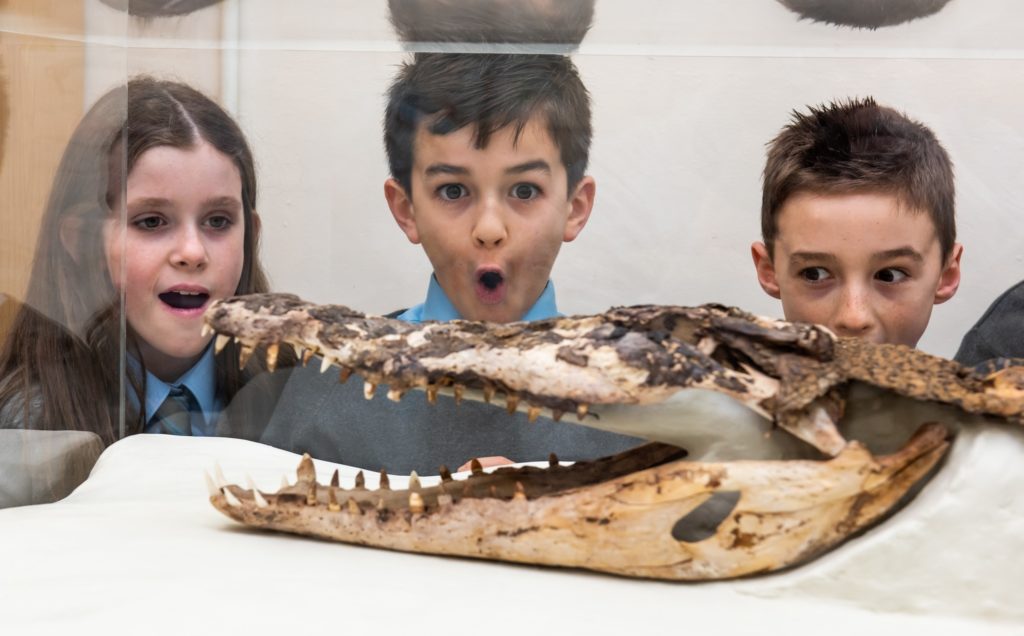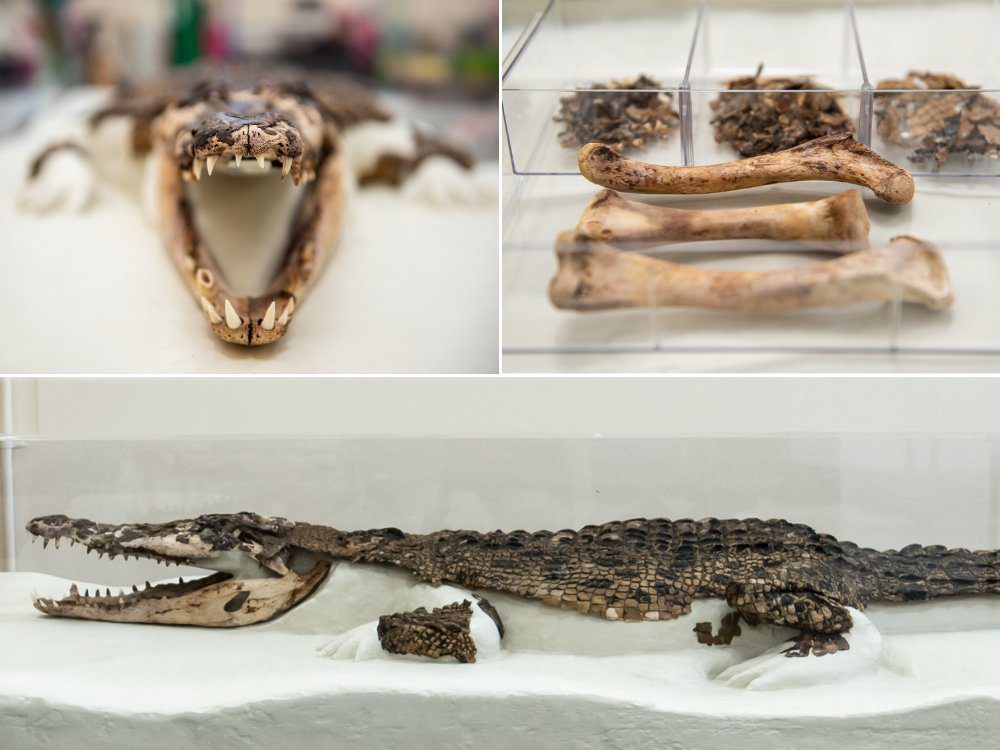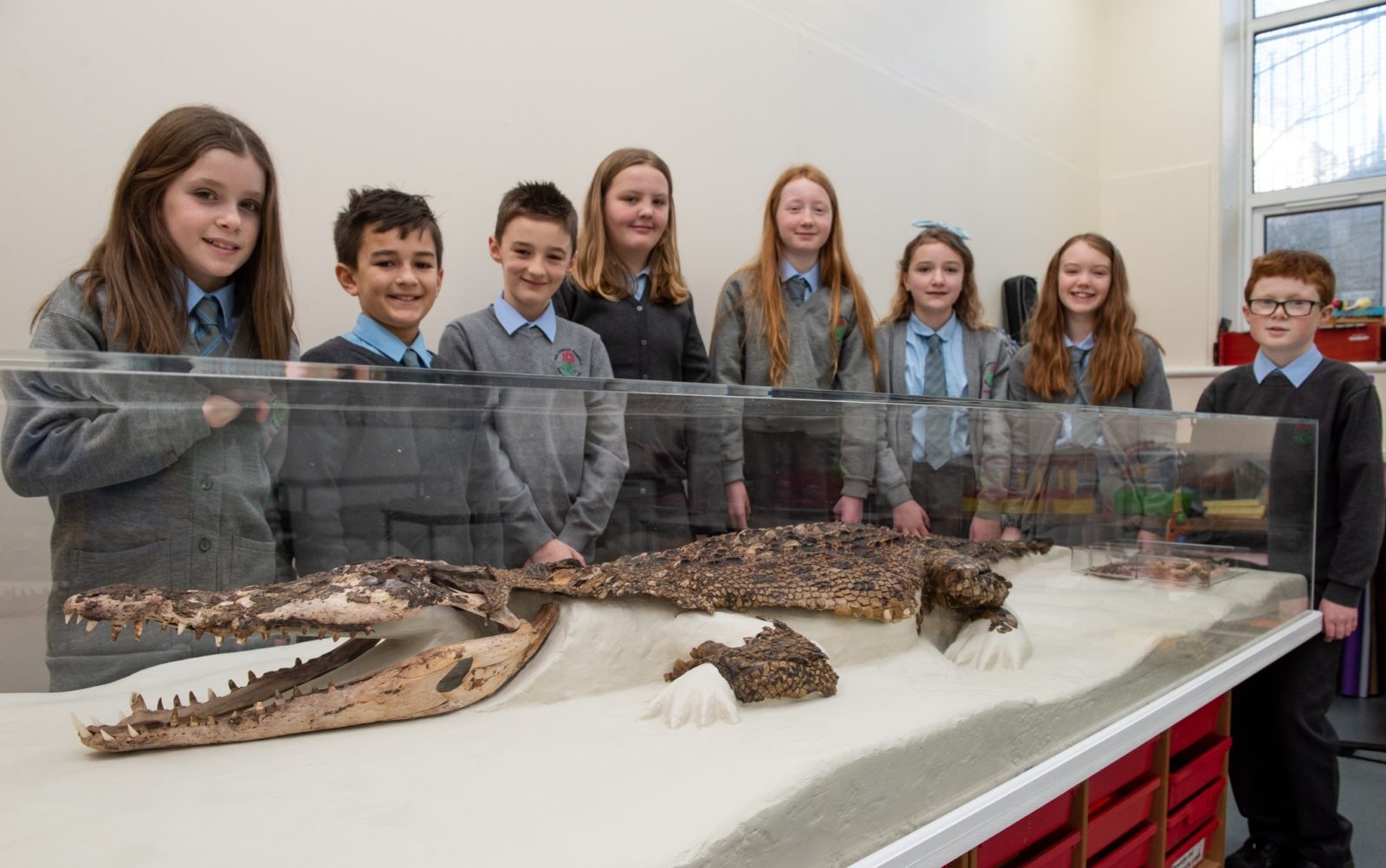A 120-year-old crocodile has been put on display at a Rhondda primary school for everyone to enjoy – having been meticulously conserved after it was remarkably discovered underneath the floorboards of a classroom.
Pupils at Ysgol Gynradd Gymraeg Bodringallt in Pentre arrived at school on Wednesday to see the giant saltwater crocodile, which was discovered by workmen in June 2019 when delivering a series of school improvements. The Council has worked with Pure Conservation, a Welsh company with expertise in conservation for heritage collections, to help safely restore the crocodile.


There was no information accompanying the workmen’s finding, but a story about a crocodile being associated with the school has been told across many generations. The tale describes a local person who served in the First World War bringing back the body of a crocodile as a souvenir for the school. It is thought that the crocodile was then put on display, and was hidden beneath the floorboards to protect it during later times of conflict. An inspection of the crocodile’s bones by Pure Conservation dates it back to before the 1900s.
Pure Conservation carried out its work from September 2019 to December 2021, thanks to the dedicated work of conservator Doctor Victoria Purewal and artist Annette Marie Townsend, who specialises in Natural History.


The crocodile had suffered significant damage having been left unprotected for potentially 100 years. Its entire underside was missing, along with its feet and the base of its tail, while its teeth had fallen out and its general condition was very poor. The entire body was initially frozen to remove pests and was tested for dangerous materials, before the crocodile was then wet cleaned.
The process has involved meticulously dry cleaning the crocodile’s entire body, with separate pieces vacuumed to remove frass, dirt, cobwebs and soil.
The bones were cleaned in a slow process taking several attempts, and the loose teeth were reconciled with the sockets. This was particularly difficult as the teeth were broken and some were lost, while there were also examples of original new and old teeth – as crocodiles constantly replace their teeth.
The body was soft brushed and vacuumed to remove a thick layer of soil and cobwebs, and a wet clean removed ingrained dirt. Damaged scales were loose, brittle and very difficult to reattach. Categorised by size and colour, they were arranged to replace missing sections of the body. It was agreed that a supporting mould was needed to define the crocodile’s overall body shape.
The crocodile and its supporting mould were completed just before Christmas, and were put on display at the school on Tuesday, January 11, in the evening. It is being displayed with a box holding several sections of loose materials and three bones, which were not able to be used within the crocodile’s main body.
Councillor Joy Rosser, Rhondda Cynon Taf Council’s Cabinet Member for Education and Inclusion Services, said: “The story of the crocodile at Ysgol Gynradd Gymraeg Bodringallt is absolutely incredible – it was the last thing workmen thought they’d find underneath a classroom! I’m delighted its conservation is now complete, and that the legendary crocodile which was rumoured to have been associated with the school is now proudly on display.
“I’d like to thank Pure Conservation for their dedicated work in restoring the crocodile, and for making it safe for the school to keep. Their thorough analysis dates the crocodile back to the 19th Century – and its condition when discovered in 2019 is consistent with it being potentially untouched for up to a century! I’d like to thank Doctor Victoria Purewal and Annette Marie Townsend for their dedication and close working with the Council.
“It was fantastic to see the excited look on pupils’ faces when they saw the crocodile on display. I’m sure it will become a cherished part of the school going forward – representing a one-of-a-kind, real piece of local history which can be enjoyed by pupils and staff members for generations to come.”








Leave a Reply
View Comments